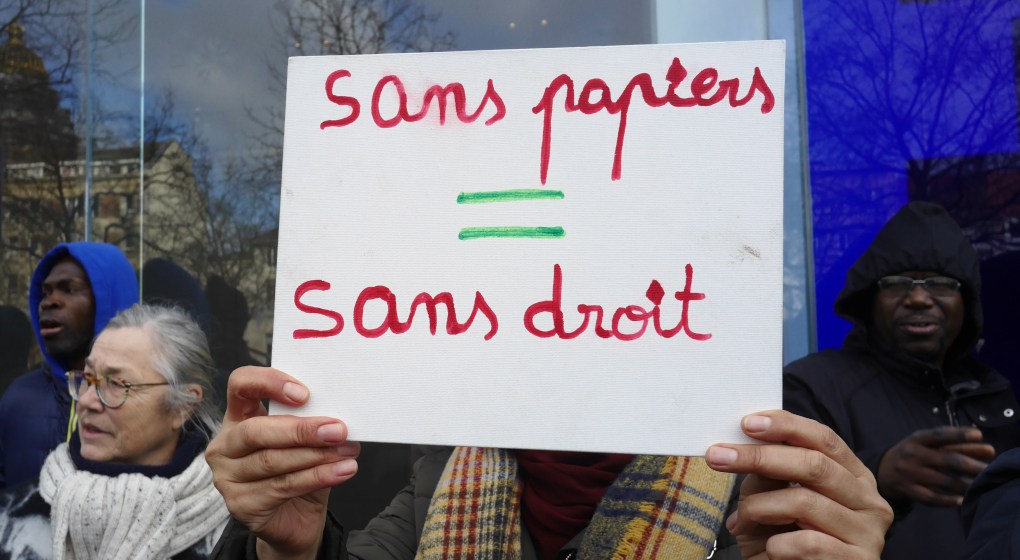Following the announcement that the more than 400 undocumented migrants who had been on hunger strike for almost two months decided to stop their protest for now, State Secretary for Asylum and Migration Sammy Mahdi has said there still won't be a policy change.
Mahdi found himself in the midst of the societal and political debate around the migrants' situation for months, but on Wednesday, as it threatened to spiral out of control, the activists who were fighting for collective regularisation agreed to cease their action as a number of negotiations were initiated.
"I have had many meetings with them, to inform them about how we conduct policy. We made it clear to them that the policy will not change, and that they should realise that a hunger strike will not help," Mahdi told Radio 1.
According to Mahdi, several of the people protesting at the VUB are still on hunger strike, but Mahdi stressed that "we are constantly trying to convince them to stop."
"These talks were not self-evident, because there was still hope that perhaps the policy would change, that there would be other criteria that would determine the regularisation policy," Mahdi explained.
He emphasised that the only promise the government can make now is that all files will be treated "individually and with humanity", and that an answer will be given very quickly, but that it can not make false promises about letting people stay for six months.
Next steps
Late on Thursday afternoon, the group l’union des sans papiers pour la Regularisation (USPR) announced the end of the action in a press release on Facebook, adding that a number of negotiations at the highest level had been initiated.
They have agreed to make their way to the neutral zone which was created by Mahdi in a bid to mitigate the situation. Legal assistance and psychosocial support are also offered.
Mahdi stressed that, in the case of regularisation being given for medical reasons, there is a difference between the first analysis, in which a doctor writes a certificate stating that someone is not in good health, and the substantive examination which follows, and during which the Immigration Department examines whether someone can receive treatment in their own country.
"The idea is not to put someone on a plane straight from their hospital bed. You have to give people time to recover, but we're also not going to give people a kind of temporary opportunity to stay here," Mahdi said.
Related News
- 100+ artists and thinkers take up the cause of hunger strikers
- End of hunger strike leaves political damage in its wake
The USPR has already made clear that it is not enough to guarantee access to legal work, and that “the suspension of the strike does not act the end of the movement.”
However, Mahdi stressed that the government not only wants to avoid this situation, but that it also wouldn't have an effect, adding that he "has been clear about the policy from day one."
Mahdi did add that a "number of things do need to change in the future" as he recognised that people are left waiting too long after applying for regularisation.
"Waiting two years for a response to a regularisation request is too long. We are going to further strengthen our services in the future," Mahdi added.

